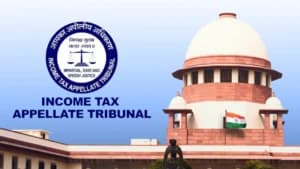The Supreme Court of India underscored the importance of preserving every document related to elections, emphasizing that all efforts must be made to maintain the integrity of electoral records. The Court made these observations while addressing a dispute over the election of a Gram Pradhan in a village in Uttar Pradesh, which took place in 2021. The case revolved around discrepancies in the vote count and the missing records of the Presiding Officer, leading the Court to question the validity of the election results.
The Supreme Court, in its judgment, highlighted that every document pertaining to an election is crucial and must be preserved meticulously. The Court noted that the diary of the Presiding Officer, which records the casting of votes, was missing despite extensive efforts to locate it. This absence raised serious doubts about the transparency and accuracy of the election process.
"Each and every document pertaining to an election is important, and all efforts should be made to preserve the same," the Court observed.
Read Also:- Supreme Court Mandates Separate Cut-Off Marks for Persons with Disabilities in Judicial Service Examinations
The bench, comprising Justice Sanjay Karol and Justice Nongmeikapam Kotiswar Singh, further stated that candidates have the right to monitor the voting process and inspect election records. If these records are missing or cannot be verified, the final outcome of the election becomes questionable.
The Court also emphasized that every vote holds intrinsic value, regardless of its impact on the final result. The sanctity of each vote must be protected to ensure the fairness and integrity of the electoral process.
"Each vote has its own value, irrespective of its effect in the final outcome of the election. Its sanctity has to be protected," the Court remarked.
In the case at hand, the appellant had been informed by the Presiding Officer that 1,193 votes were cast, but the official declaration showed 1,213 votes—a discrepancy of 19 votes. Although the respondent won by a margin of 37 votes, making the 19-vote difference inconsequential to the final result, the Court stressed that its primary concern was not the victor but the process by which the election was conducted.
"This Court's concern lies away from who is in power, and instead is in how one got to power. This process has to be in accordance with constitutional principles and established norms," the Court stated.
The Supreme Court set aside the Allahabad High Court's order, which had quashed the Sub-Divisional Magistrate's direction for a recount. The Court found that three out of the four candidates in the election had raised doubts about the election's veracity and the manner in which it was conducted. Additionally, the absence of crucial election documents, such as the Presiding Officer's diary, further justified the need for a recount.
"Since three of the four candidates question the veracity of the election and the manner in which it was conducted, and that important documents pertaining to the election are missing and such absence is unexplained, we are of the view that in the present facts, a recount would be justified," the Court concluded.
The judgment began with a poignant quote from Winston Churchill, highlighting the essence of democracy:
"At the bottom of all the tributes paid to democracy is the little man, walking into the little booth, with a little pencil, making a little cross on a little bit of paper—no amount of rhetoric or voluminous discussion can possibly diminish the overwhelming importance of that point."
The Court reiterated that elections are a cornerstone of democracy, ensuring equality for every citizen. Regardless of social, economic, or cultural disparities, every individual's vote carries equal weight in the electoral process.
"Each and every citizen, when it comes to choosing representatives in the parliamentary system, is indeed equal, when in other scenarios they may not be so, for a variety of reasons - class and caste divisions that are still deeply entrenched, gender inequality, lack of awareness and opportunities for disabled persons, etc.," the Court noted.
Case : Vijay Bahadur vs Sunil Kumar















